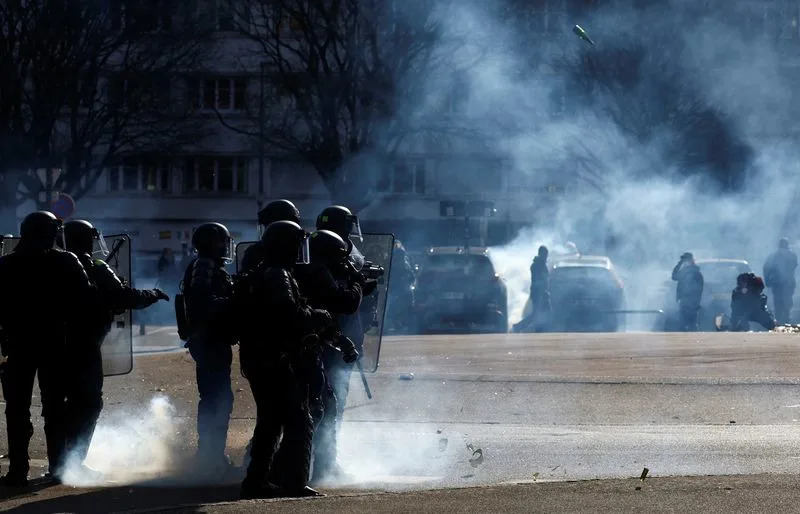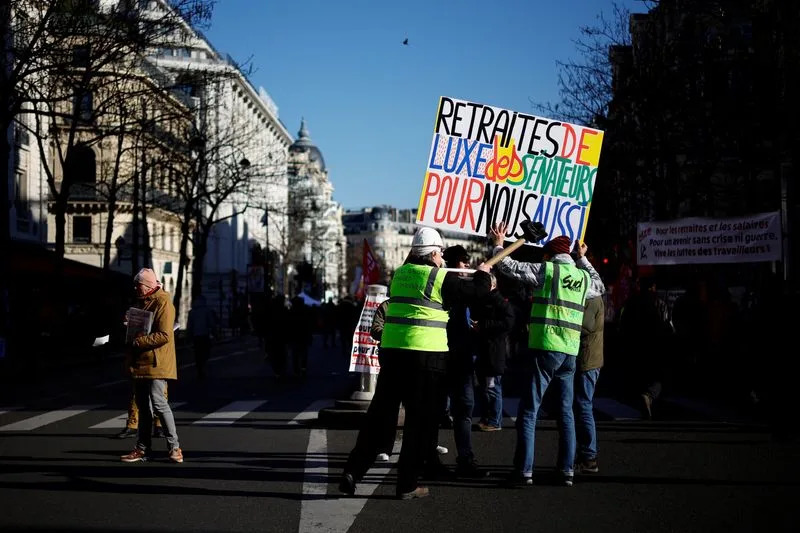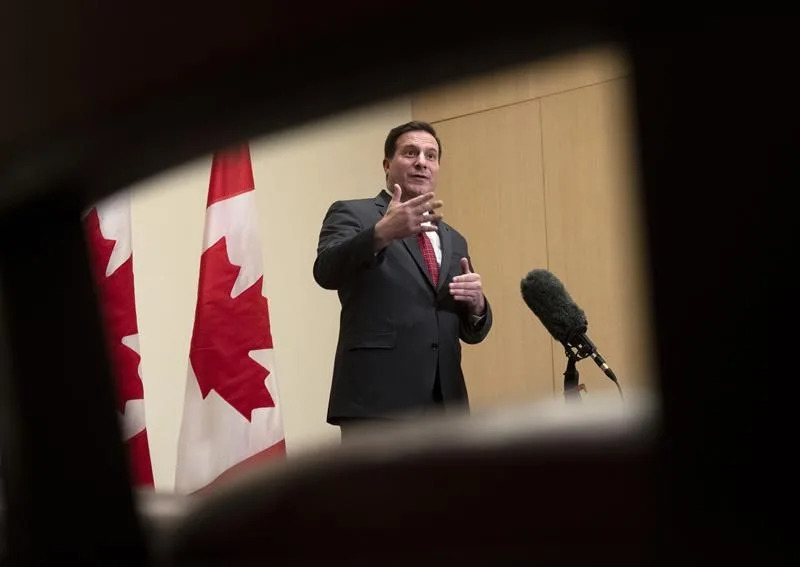Manchester City F.C. Could Face Expulsion From the Premier League

Jack Lynch
Mon, February 6, 2023
The current Premier League champions, Manchester City, have been charged with breaking financial regulations for more than 10 years and it could see the club face expulsion from England’s top-flight league.
Since 2008 -- the year the blue side of Manchester was taken over by its current owner of Sheikh Mansour -- City has been one of the most dominant sides in England, while the team has also picked up four Premier League titles over the last five years under its current manager, Pep Guardiola.
The charges, which have been released by the Premier League this morning, have been outlined as "unprecedented" and they accuse the club of repeatedly failing to provide accurate financial information. In addition, the Cityzens have also been accused of not disclosing contractual payments and failing to cooperate with Premier League investigators.
With this in mind, a spokesperson on behalf of Manchester City said: "Manchester City F.C. is surprised by the issuing of these alleged breaches of the Premier League rules, particularly given the extensive engagement and vast amount of detailed materials that the EPL has been provided with.
"The club welcomes the review of this matter by an independent commission, to impartially consider the comprehensive body of irrefutable evidence that exists in the support of its position. As such, we look forward to this matter being put to rest once and for all."
The current accusations date back to 2009, a year after the club's takeover by the brother of the ruler of Abu Dhabi which lead to an incredibly quick turnaround of both financial spending and success. During this period, there have been reoccurring suspicions about City's financial spending on both transfers and wages by the Premier League and also Europe's football governing body, UEFA.
In 2020, UEFA banned Manchester City from the Champions League for two years for financial rules violations, however, the club appealed the decision and had the ban overturned. But, unlike UEFA, the Premier League does not have a statute of limitations in its regulations.
The sheer scale of the wrongdoing Manchester City has been accused of has never been seen before and no previous investigation has lasted as long as this current case against the current Premier League champions.
How Manchester City came to face Premier League charges
Mon, February 6, 2023

GENEVA (AP) — The English Premier League vs. Manchester City: a legal fixture for the ages.
Soccer’s richest and most watched club competition challenged its defending champion on Monday with more than 100 charges of alleged financial wrongdoing and failures to cooperate with an investigation that took more than four years.
Dozens of charges allege breaches of the league’s financial monitoring rules dating from 2009, or the first full season Man City was owned by the ruling family of Abu Dhabi. Thirty more charges relate to Man City’s lack of cooperation in the past five seasons with a Premier League investigation that opened after leaked, and likely hacked, club internal communications were published in 2018.
That leaked evidence led UEFA investigators to examine likely breaches of financial rules designed to create stability in an often-volatile European soccer industry. UEFA-appointed judges imposed a two-year ban from the Champions League in 2020, which the club overturned on appeal at the Court of Arbitration for Sport.
Man City seems more at risk from the English case, which does not involve a statute of limitations on evidence that was a problem for UEFA lawyers.
The Premier League rule book — signed off by member clubs like Man City — gives its disciplinary commissions sweeping powers to punish teams if charges are proven. That could range from imposing a fine to taking away a title or even ejecting Man City from England's top division.
Here's a closer look at the case:
WHAT ARE THE FINANCIAL RULES?
Known as Financial Fair Play, the regulations are aimed at preventing clubs from spending more than they earn. FFP was established in the aftermath of the 2008 global financial crisis, which deepened worries in European soccer that clubs could go out of business if the cost of player transfers and wages kept rising.
Critics believed they would favor storied clubs with established global appeal, such as Bayern Munich, Real Madrid and Manchester United. They said FFP would be used to thwart emerging clubs who had wealthy owners ready to spend heavily and accelerate growth.
At the same time, historically underachieving Manchester City was bought in September 2008 with sovereign wealth from the United Arab Emirates. When UEFA in 2011 began monitoring finances of clubs who qualified for European competition, City had made progress by big spending on players.
The first round of FFP judgments in 2014 saw the heaviest penalties for Man City and Paris Saint-Germain — each lost 20 million euros ($21.4 million) in Champions League prize money.
Both were suspected of booking inflated revenue in their accounts through sponsor deals at above market rates with companies from Abu Dhabi and Qatar.
“If clubs use unrealistic deals as a way to get around Financial Fair Play,” Arsène Wenger had warned in 2012 when coach at Arsenal, "it will make a mockery of the rules.”
The English Premier League later adopted a version of UEFA FFP rules.
WHAT WAS THE LEAKED EVIDENCE?
In November 2018, Man City was the Premier League champion with three titles in the first decade of its Abu Dhabi era, and a lavishly talented squad coached by Pep Guardiola.
Yet skepticism remained about the club's commercial results.
German magazine Der Spiegel then published the “Football Leaks” series of articles based on the club's internal documents and communications.
They suggested Man City had broken FFP rules in financial relationships with "related-party" sponsors from Abu Dhabi, its use of image rights payments to players and the contract of Roberto Mancini, who was manager from 2009-13. He allegedly doubled his base salary for advising a club in Abu Dhabi.
Man City did not deny the documents were authentic but said they were illegally obtained by a Portuguese man, Rui Pinto. He later went on trial in Lisbon. A verdict is scheduled in April.
WHAT HAPPENED WITH THE UEFA CASE?
After the Football Leaks publication, UEFA’s club investigators revisited their case and asked the judging chamber to ban Man City from European competitions.
In February 2020, those judges banned Man City for two seasons for “serious breaches” of rules from 2012-16, including overstating sponsor revenue and failing to cooperate with investigators.
Three CAS judges overturned the ban in July 2020, ruling that some UEFA charged were not proven and other evidence was excluded as time-barred. The court “strongly condemned” Man City for obstructing UEFA’s investigation, though a €10 million ($10.7 million) fine was one-third of the original punishment.
Allowed to play in the next Champions League, Man City reached the final and earned 119 million euros ($128 million) in prize money.
WHAT IS THE PREMIER LEAGUE CASE?
The English case against Man City continued separately from the UEFA process in Switzerland.
The Premier League announced charges Monday. A lawyer who chairs the league’s judicial panel will appoint a disciplinary commission of three judges.
A hearing will be held in secret, with no timetable yet for a verdict. Any subsequent legal challenge should go to the Premier League’s Appeal Board.
Man City said it was surprised by the charges and “we look forward to this matter being put to rest once and for all.”
___
More AP soccer: https://apnews.com/hub/soccer and https://twitter.com/AP_Sports
Graham Dunbar, The Associated Press
Mon, February 6, 2023

GENEVA (AP) — The English Premier League vs. Manchester City: a legal fixture for the ages.
Soccer’s richest and most watched club competition challenged its defending champion on Monday with more than 100 charges of alleged financial wrongdoing and failures to cooperate with an investigation that took more than four years.
Dozens of charges allege breaches of the league’s financial monitoring rules dating from 2009, or the first full season Man City was owned by the ruling family of Abu Dhabi. Thirty more charges relate to Man City’s lack of cooperation in the past five seasons with a Premier League investigation that opened after leaked, and likely hacked, club internal communications were published in 2018.
That leaked evidence led UEFA investigators to examine likely breaches of financial rules designed to create stability in an often-volatile European soccer industry. UEFA-appointed judges imposed a two-year ban from the Champions League in 2020, which the club overturned on appeal at the Court of Arbitration for Sport.
Man City seems more at risk from the English case, which does not involve a statute of limitations on evidence that was a problem for UEFA lawyers.
The Premier League rule book — signed off by member clubs like Man City — gives its disciplinary commissions sweeping powers to punish teams if charges are proven. That could range from imposing a fine to taking away a title or even ejecting Man City from England's top division.
Here's a closer look at the case:
WHAT ARE THE FINANCIAL RULES?
Known as Financial Fair Play, the regulations are aimed at preventing clubs from spending more than they earn. FFP was established in the aftermath of the 2008 global financial crisis, which deepened worries in European soccer that clubs could go out of business if the cost of player transfers and wages kept rising.
Critics believed they would favor storied clubs with established global appeal, such as Bayern Munich, Real Madrid and Manchester United. They said FFP would be used to thwart emerging clubs who had wealthy owners ready to spend heavily and accelerate growth.
At the same time, historically underachieving Manchester City was bought in September 2008 with sovereign wealth from the United Arab Emirates. When UEFA in 2011 began monitoring finances of clubs who qualified for European competition, City had made progress by big spending on players.
The first round of FFP judgments in 2014 saw the heaviest penalties for Man City and Paris Saint-Germain — each lost 20 million euros ($21.4 million) in Champions League prize money.
Both were suspected of booking inflated revenue in their accounts through sponsor deals at above market rates with companies from Abu Dhabi and Qatar.
“If clubs use unrealistic deals as a way to get around Financial Fair Play,” Arsène Wenger had warned in 2012 when coach at Arsenal, "it will make a mockery of the rules.”
The English Premier League later adopted a version of UEFA FFP rules.
WHAT WAS THE LEAKED EVIDENCE?
In November 2018, Man City was the Premier League champion with three titles in the first decade of its Abu Dhabi era, and a lavishly talented squad coached by Pep Guardiola.
Yet skepticism remained about the club's commercial results.
German magazine Der Spiegel then published the “Football Leaks” series of articles based on the club's internal documents and communications.
They suggested Man City had broken FFP rules in financial relationships with "related-party" sponsors from Abu Dhabi, its use of image rights payments to players and the contract of Roberto Mancini, who was manager from 2009-13. He allegedly doubled his base salary for advising a club in Abu Dhabi.
Man City did not deny the documents were authentic but said they were illegally obtained by a Portuguese man, Rui Pinto. He later went on trial in Lisbon. A verdict is scheduled in April.
WHAT HAPPENED WITH THE UEFA CASE?
After the Football Leaks publication, UEFA’s club investigators revisited their case and asked the judging chamber to ban Man City from European competitions.
In February 2020, those judges banned Man City for two seasons for “serious breaches” of rules from 2012-16, including overstating sponsor revenue and failing to cooperate with investigators.
Three CAS judges overturned the ban in July 2020, ruling that some UEFA charged were not proven and other evidence was excluded as time-barred. The court “strongly condemned” Man City for obstructing UEFA’s investigation, though a €10 million ($10.7 million) fine was one-third of the original punishment.
Allowed to play in the next Champions League, Man City reached the final and earned 119 million euros ($128 million) in prize money.
WHAT IS THE PREMIER LEAGUE CASE?
The English case against Man City continued separately from the UEFA process in Switzerland.
The Premier League announced charges Monday. A lawyer who chairs the league’s judicial panel will appoint a disciplinary commission of three judges.
A hearing will be held in secret, with no timetable yet for a verdict. Any subsequent legal challenge should go to the Premier League’s Appeal Board.
Man City said it was surprised by the charges and “we look forward to this matter being put to rest once and for all.”
___
More AP soccer: https://apnews.com/hub/soccer and https://twitter.com/AP_Sports
Graham Dunbar, The Associated Press
Strip Manchester City of their titles?
This is what I would do if they are guilty
Jason Burt
City claim 'body of irrefutable evidence' supports them
City’s defence is fiercely robust. In a terse 79-word statement the club could not be clearer in its belief that there is “a body of irrefutable evidence” to support its case and that needs to be aired. There has been too much secrecy and cloak-and-dagger about all of this.
What the charges also show is that the Premier League clubs are at war. City sources believe that the Premier League has acted under huge pressure from other clubs and point to the fact that nine of them – Arsenal, Liverpool, Manchester United, Tottenham Hotspur, Chelsea, Leicester City, Wolverhampton Wanderers, Newcastle United and Burnley – wrote to the Court of Arbitration for Sport on in March 2020 to argue that City should be excluded from Europe while their successful appeal was heard. Wolves later pulled out.
In the early Abramovich years Chelsea also acted in a similar spending manner to City, provoking Arsène Wenger’s famous “financial doping” comment, and then worked to change the rules to stop others following them. That is also true but it is not a good argument. After all if the speed limit is lowered on a road it is no defence for a driver to claim he should not be prosecuted for speeding because his neighbour drove past his house at 30mph and not 20mph the year before.
'City feel their rivals have ganged up on them'
Even so the next meeting of the Premier League clubs promises to be spicy. City will feel that their rivals have ganged up on them. The gloves are off. At the same time this is the ultimate test for the Premier League to show how strong it is, whether it can prove there is no need for an independent football regulator (timely given the Government White Paper was due out this week) as it has decided to take on City and the legal might its owners have threatened to employ.
The sheer scale of the charges suggests that the endgame is not just a fine and a rap over the knuckles while City will fight every point. This will take months, maybe even years. In English football, this is unprecedented and potentially seismic.
There is so much going on here. So much potential ‘whataboutery’ and politicking – and geo-politicking – but it needs to be stripped down to the facts: if City have been caught out, if they have broken the rules, then they should be punished. And punished severely. Other clubs are sailing close to the wind on Financial Fair Play and this will serve as a warning to them.
City should not have their titles taken away from them, though. What purpose would that serve? It may delight rival fans yet would not only feel vindictive but, as already stated, it is hard to prove that the title was directly won because of financial irregularities. Even so those titles will be spoilt as they will forever be associated with wrongdoing.
Certainly though, if guilty, City need to be severely punished in a meaningful way that affects their future. The sheer volume of charges is shocking and warrants sanctions such as a very large points deduction and being restricted in the way they can operate in a number of subsequent transfer windows.
The bigger question is whether they should face immediate expulsion from the Premier League and there will be demands for that and the answer clearly depends on what is proven and the scale of it.
Instinctively it feels a step too far given the grievous damage it would do to the club and the people it employs but it is something that City might have to contemplate. After all, other clubs could then argue that they have been damaged, and had to make cuts, because of City’s behaviour. If the charges stick and the book is thrown at them then City can have no complaint. They will also have spoiled their own history.
Jason Burt
TELEGRAPH
Mon, February 6, 2023

Sergio Aguero wins Man City the 2012 title - Getty Images/Ed Garvey
If – and it must be remembered that it remains a very big if at present – Manchester City are found guilty of the 115 charges brought against them by the Premier League then the Sergio Agüero moment will be forever tainted.
So much focus is on what happens next for City if they are guilty of wholesale cooking the books – heavy fines, points deductions even expulsion from the league – but what is also exercising fans is what happens about the past?
City won three league titles during the nine seasons in which they stand accused of breaching financial regulations and three more during the five years of allegedly failing to co-operate. If those charges are proven should all those titles stand? And what of City’s six League Cups and two FA Cups?
Agüero’s late, late goal delivered that first title in May 2012, taking it away from Manchester United only on goal difference. The timing of it – 93.20 minutes – is emblazoned on the side of the Etihad Stadium. There is a statue of Agüero ripping off his shirt in celebration. It was voted the most iconic Premier League moment ever.
And yet if they are found guilty can it ever be viewed the same? At the very least there will be an asterisk beside it in the history books.
Taking away titles is difficult and such retrospective punishment does not actually appear to be within the powers of the independent commission, although there is a catch-all “make such other order as it thinks fit” which could cover that. Like so many things in this case, it would be open to further appeal.
Nevertheless it feels like a step too far. It will be hard for clubs to prove that they lost out on a trophy or, more pertinently for some because of the finances involved, Champions League qualification directly because of City’s behaviour even if they were seeking an unfair advantage.
Yet United and Liverpool may take note – especially with the words of Lord Justice Males, the Court of Appeal judge, who said in July 2021 of the length of time the Premier League investigation was taking “during which, it may be noted, the club [City] have twice been crowned as Premier League champions.”
Mon, February 6, 2023

Sergio Aguero wins Man City the 2012 title - Getty Images/Ed Garvey
If – and it must be remembered that it remains a very big if at present – Manchester City are found guilty of the 115 charges brought against them by the Premier League then the Sergio Agüero moment will be forever tainted.
So much focus is on what happens next for City if they are guilty of wholesale cooking the books – heavy fines, points deductions even expulsion from the league – but what is also exercising fans is what happens about the past?
City won three league titles during the nine seasons in which they stand accused of breaching financial regulations and three more during the five years of allegedly failing to co-operate. If those charges are proven should all those titles stand? And what of City’s six League Cups and two FA Cups?
Agüero’s late, late goal delivered that first title in May 2012, taking it away from Manchester United only on goal difference. The timing of it – 93.20 minutes – is emblazoned on the side of the Etihad Stadium. There is a statue of Agüero ripping off his shirt in celebration. It was voted the most iconic Premier League moment ever.
And yet if they are found guilty can it ever be viewed the same? At the very least there will be an asterisk beside it in the history books.
Taking away titles is difficult and such retrospective punishment does not actually appear to be within the powers of the independent commission, although there is a catch-all “make such other order as it thinks fit” which could cover that. Like so many things in this case, it would be open to further appeal.
Nevertheless it feels like a step too far. It will be hard for clubs to prove that they lost out on a trophy or, more pertinently for some because of the finances involved, Champions League qualification directly because of City’s behaviour even if they were seeking an unfair advantage.
Yet United and Liverpool may take note – especially with the words of Lord Justice Males, the Court of Appeal judge, who said in July 2021 of the length of time the Premier League investigation was taking “during which, it may be noted, the club [City] have twice been crowned as Premier League champions.”
City claim 'body of irrefutable evidence' supports them
City’s defence is fiercely robust. In a terse 79-word statement the club could not be clearer in its belief that there is “a body of irrefutable evidence” to support its case and that needs to be aired. There has been too much secrecy and cloak-and-dagger about all of this.
What the charges also show is that the Premier League clubs are at war. City sources believe that the Premier League has acted under huge pressure from other clubs and point to the fact that nine of them – Arsenal, Liverpool, Manchester United, Tottenham Hotspur, Chelsea, Leicester City, Wolverhampton Wanderers, Newcastle United and Burnley – wrote to the Court of Arbitration for Sport on in March 2020 to argue that City should be excluded from Europe while their successful appeal was heard. Wolves later pulled out.
In the early Abramovich years Chelsea also acted in a similar spending manner to City, provoking Arsène Wenger’s famous “financial doping” comment, and then worked to change the rules to stop others following them. That is also true but it is not a good argument. After all if the speed limit is lowered on a road it is no defence for a driver to claim he should not be prosecuted for speeding because his neighbour drove past his house at 30mph and not 20mph the year before.
'City feel their rivals have ganged up on them'
Even so the next meeting of the Premier League clubs promises to be spicy. City will feel that their rivals have ganged up on them. The gloves are off. At the same time this is the ultimate test for the Premier League to show how strong it is, whether it can prove there is no need for an independent football regulator (timely given the Government White Paper was due out this week) as it has decided to take on City and the legal might its owners have threatened to employ.
The sheer scale of the charges suggests that the endgame is not just a fine and a rap over the knuckles while City will fight every point. This will take months, maybe even years. In English football, this is unprecedented and potentially seismic.
There is so much going on here. So much potential ‘whataboutery’ and politicking – and geo-politicking – but it needs to be stripped down to the facts: if City have been caught out, if they have broken the rules, then they should be punished. And punished severely. Other clubs are sailing close to the wind on Financial Fair Play and this will serve as a warning to them.
City should not have their titles taken away from them, though. What purpose would that serve? It may delight rival fans yet would not only feel vindictive but, as already stated, it is hard to prove that the title was directly won because of financial irregularities. Even so those titles will be spoilt as they will forever be associated with wrongdoing.
Certainly though, if guilty, City need to be severely punished in a meaningful way that affects their future. The sheer volume of charges is shocking and warrants sanctions such as a very large points deduction and being restricted in the way they can operate in a number of subsequent transfer windows.
The bigger question is whether they should face immediate expulsion from the Premier League and there will be demands for that and the answer clearly depends on what is proven and the scale of it.
Instinctively it feels a step too far given the grievous damage it would do to the club and the people it employs but it is something that City might have to contemplate. After all, other clubs could then argue that they have been damaged, and had to make cuts, because of City’s behaviour. If the charges stick and the book is thrown at them then City can have no complaint. They will also have spoiled their own history.












